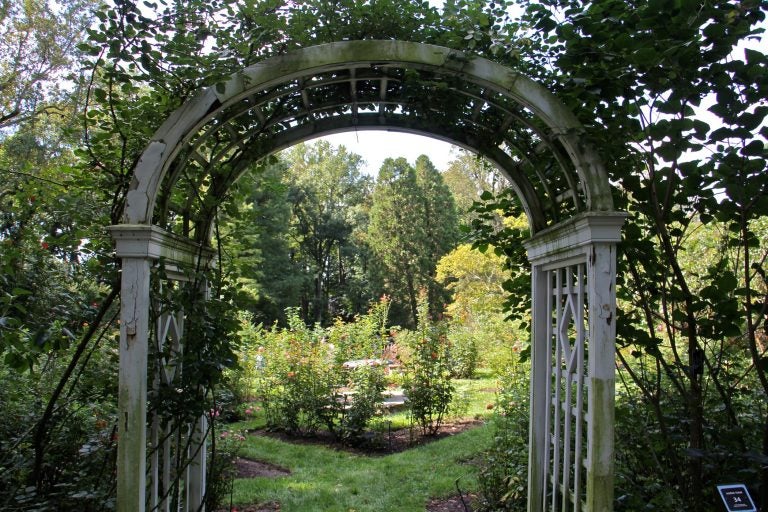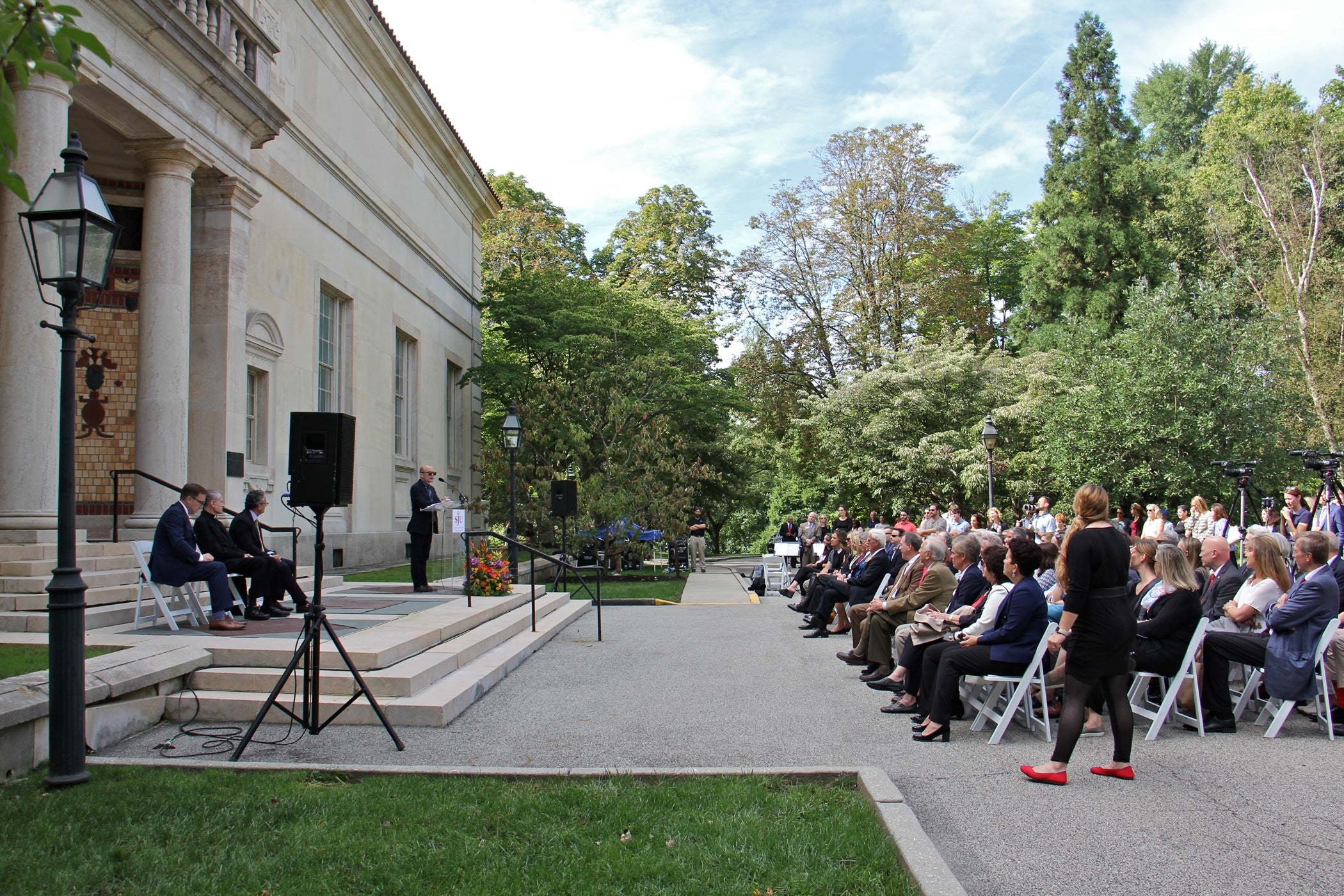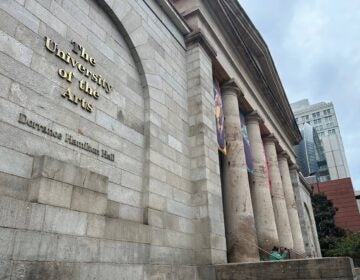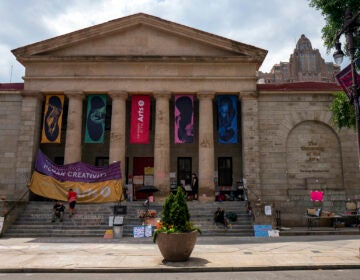Realizing Barnes’ dream, Lower Merion garden entrusted to St. Joe’s University
The Barnes Foundation arboretum, at the original Lower Marion location, is now operated by St. Joseph's University.

The Arboretum at the Barnes Foundation in Lower Merion will become instrumental in educating horticulture students at St. Joseph's University under a new partnership that will enhance opportunities for students at both institutions. (Emma Lee/WHYY)
When the Barnes Foundation moved its world-famous art collection to Philadelphia’s Benjamin Franklin Parkway in 2012, it left behind 14 acres of natural landscape at its former site in Lower Merion.
Albert Barnes always intended the arboretum to be an integral part of his artworks, with the interior of the galleries meant to be experienced in concert with the landscape that was expertly handled by his wife, Laura Barnes.
The arboretum includes a pond, a cultured fern grove, a wide meadow ringed with rare trees, and a darkened copse thick with undergrowth. Walking trails meander through the property. Small plaques identify many individual plants.
A formal rose garden showcases several varieties, including the “Auguste Renoir” hybrid, a nod to the many Renoir paintings in the collection. Its flowers are fat and pink.
In the 1940s, under Laura Barnes’ leadership, the foundation began a three-year certificate program to train students in horticultural science. That program has continued, even after the move downtown.
In July, the Barnes Foundation handed over the reins of the arboretum to its immediate neighbor, St. Joseph’s University.
“Dr. and Mrs. Barnes had always hoped there would be a university relationship that would power the arboretum program,” said Thom Collins, Barnes Foundation president and executive director. “So, this is a realization of that dream.”

Collins recently attended a garden party on the grounds of the arboretum to celebrate the partnership, which will produce educational heft: pairing St. Joseph’s academic resources with the Barnes property will allow the university to develop degree programs.
“People who participate in the horticulture programs will get more than a certificate,” said Mark Reed, St. Joseph’s president. “It will be a minor that carries academic credit.”
The university will also take over the maintenance and programming of the building where Albert Barnes meticulously hung his collection including Matisses, Picassos, Cezannes, and Renoirs. The interior spaces — now emptied of all the art — likely will be renovated.
With its distinctive tile work and embedded sculpture, the exterior will remain untouched — except for the name. In honor of one of St. Joseph’s major donors, it will be called the Frances M. Maguire Gallery.
Funding for the stewardship of the Barnes arboretum will come out of last year’s $50 million gift from James and Frances Maguire, the largest in university history.
At the garden party, Reed gave a special nod to Frances Maguire and her longtime support of the arts.
“I won’t allow anyone to refer to this as the Maguire Gallery,” he said. “This will be the Frances Maguire Gallery.”
That gallery will likely be turned into a museum for the university’s art collection, as well as housing some of its art programs.
“We’re still at the very early stages of this,” said Reed. “But when you have an opportunity to partner with an organization like the Barnes, and 14 acres adjacent of natural beauty, and somebody says, ‘Do you want it? You don’t buy it or pay rent, but you have to work with us.’ You say yes.”
Public access to the Barnes arboretum will not be altered. But Reed said he will punch new access points through the iron fence surrounding the property, to better connect it to his campus.
WHYY is your source for fact-based, in-depth journalism and information. As a nonprofit organization, we rely on financial support from readers like you. Please give today.





